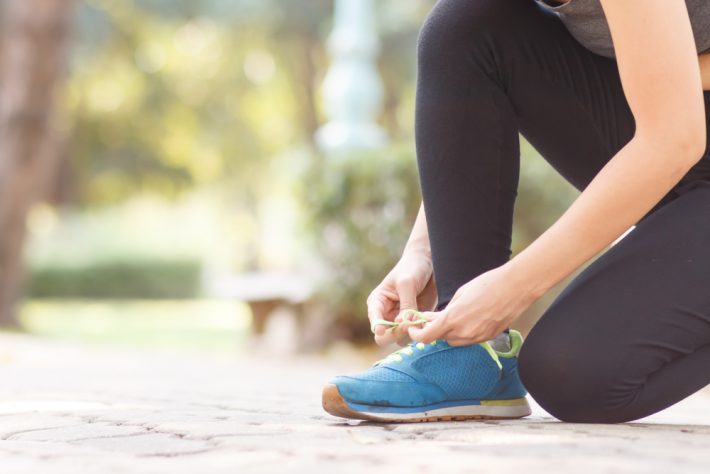
Ah yes, running. We’ve all done it some point for varying reasons, whether that be running for recreation, running for sport, or just running to late appointments. Either way, it’s one of the best cardio exercises out there and something that can be great for your health and wellbeing.
The thing is though, many of us seem to struggle immensely with sustaining a running habit of well… running.
More often than not, that running habit usually falls flat when an injury or soreness really starts to slow us down as a result of making a common mistake with our runs. So what are these common mistakes? And how can you avoid them?
Technique Troubles
Running seems like a simple enough activity. Just place one foot in front of the other. Right? Well turns out there’s more to this running thing than you might think when first starting out. Many of us develop poor running habits as children that carry through to adulthood. And it’s these poor habits that lead to injury if not nipped in the bud.
So what are these poor habits? Some of the most common technique troubles include:
- Overstriding: Landing heel first well ahead of your body’s natural centre of gravity
- Bad upper body form: Running with hands way up by your chest and swinging arms side to side rather than straight back and forth
- Losing control on hills: Leaning too far forward and going too fast downhills
- Not breathing properly: Breathing too shallow, causing side stitches
Tweaking your form will not only make a big impact on your running performance but will also help protect you from common injuries.
Not Enough Strength
As it turns out, one of the more important things you could be doing to increase the ability and frequency of your runs is to do something else instead.
Yes, it’s true, doing strength training alongside your running routine will help improve your performance. Because running is primarily a cardio exercise, it can cause you to drop muscle mass over time. This increases your risk of getting injured as your muscles will find it harder to adequately perform their jobs and support those precious joints.
Incorporating some regular strength training will help your muscles retain their mass and ability to perform run after run.
Sick to Your Bones
Just like your muscles, bones go through a cycle of stress and recovery every time you run. A little stress works to increase your natural process of bone turnover, which is why a lot of runners actually have healthier bones. However, too much stress can have the opposite effect and eventually lead to injury.
Avoiding going “too hard” will help keep that stress in healthy ranges. And supplements can be used to further improve your bone health, with specific attention being reserved for vitamin D and RDI of calcium, both of which are crucial to your bone’s ability to improve over time.
Heavy lifting training can also be massively helpful for your bones overall health. Engaging in a routine of squats and deadlifts twice a week is an ideal way to improve your bones health and mass while also helping your system recover from running the previous day.
Stretching & Foam Rolling Obsessed
Listen, we understand, stretching and breaking out the foam roller has its place in any exercise program. But with running, there’s very much a philosophy of “less-is-more” with the benefits of lots of stretching being marginal compared to the most basic stretching routines.
Similarly, the foam roller seems to live a charmed life amongst runners, being used religiously despite only having a minimal effect on the end result of your run.
There’s no need to cut out your stretching and foam rolling routine, but you could actually make better use of your time by engaging in the aforementioned strength and lifting routines that would help massively with recovery and overall muscle and bone health to make your runs more effective in the short and long term.
If you’d like to figure out the best techniques for running and recovery, or you’re dealing with a running-related injury that’s hampering your performance you can contact our physio in Inglewood and surrounding suburbs for an appointment today.
At Morley Physiotherapy Centre, we can provide you with the professional advice and treatment you need to be able to lead an active and pain-free life.
